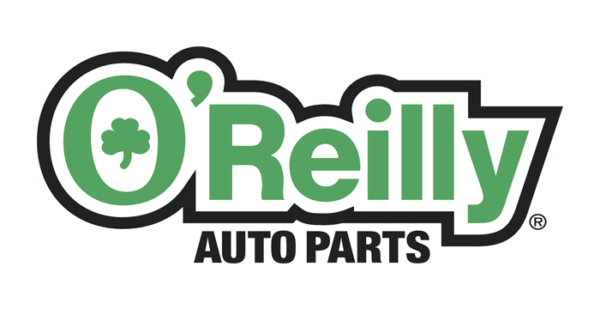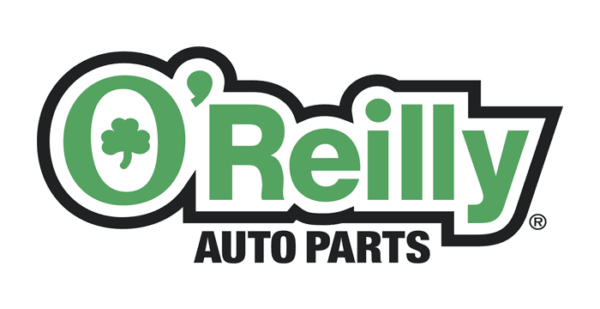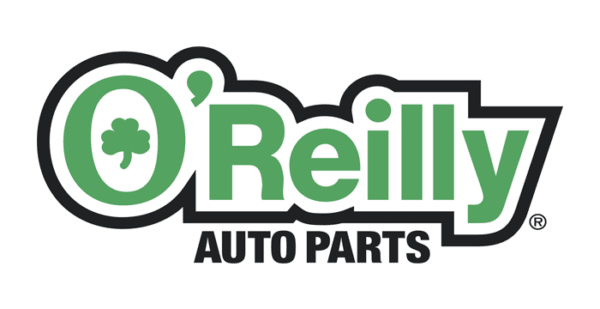O'Reilly Automotive Named Top Sector Pick, Analyst Sees Strong 2025 Performance

O'Reilly Automotive (NASDAQ:ORLY) remains TD Cowen’s top stock pick in the sector, with analysts reaffirming a Buy rating and a $1,400 price target. Despite expectations of a sluggish year for the industry, O'Reilly's combination of offensive and defensive strengths positions it for market-leading comparable sales growth in 2025, particularly driven by a stronger "Do-It-For-Me" (DIFM) business.
TD Cowen anticipates a fourth-quarter beat on both comparable sales and earnings per share (EPS) and believes management could guide for 2025 comparable sales growth of 2-4%. This would be a cautious outlook given the mixed consumer environment, but the analysts suggest O’Reilly could raise its guidance later in the year if conditions improve. Alternatively, the company may issue a more historically typical range of 3-5% growth from the start.
Valuation remains attractive, supported by ORLY’s best-in-class execution and a scarcity premium. However, the analysts acknowledge that O’Reilly’s price-to-earnings premium over competitor AutoZone has now stretched beyond historical norms, exceeding two standard deviations above past trends.
Despite this, ORLY continues to stand out as a high-quality stock in the auto parts retail sector, offering both resilience in a challenging economic climate and upside potential from its operational excellence. Investors looking for stability and growth may find O’Reilly a compelling choice in 2025.
| Symbol | Price | %chg |
|---|---|---|
| ASII.JK | 6375 | 3.53 |
| MASA.JK | 6200 | 0 |
| 012330.KS | 299500 | -5.51 |
| AUTO.JK | 2650 | 3.77 |

O’Reilly Shares Dip on Cautious Outlook Despite Record Earnings
O’Reilly Automotive (NASDAQ:ORLY) reported record second-quarter earnings for 2025 but saw shares edge down 1% in pre-market trading due to a slightly weaker-than-expected full-year revenue forecast.
Quarterly revenue climbed 6% year-over-year to $4.53 billion, compared with $4.27 billion a year earlier. Comparable store sales grew 4.1%, up from 2.3% in the same period last year, supported by strength in both professional and DIY segments.
Despite the strong quarterly figures, full-year revenue guidance of $17.5 billion to $17.8 billion came in below analyst expectations of around $17.94 billion. However, the company’s projected EPS of $2.85 to $2.95 was in line with consensus.
O’Reilly Automotive expects gross margins between 51.2% and 51.7% for the full year, with operating income margins projected between 19.2% and 19.7%. Free cash flow is forecasted at $1.6 billion to $1.9 billion, supporting ongoing investments and shareholder returns.

O'Reilly Automotive, Inc. (NASDAQ:ORLY) Executes 1-for-15 Stock Split
- O'Reilly Automotive, Inc. (NASDAQ:ORLY) has executed a 1-for-15 stock split, aiming to make shares more accessible and appealing to a broader range of investors.
- Before the split, ORLY's stock price was $1,348.10, with a market capitalization of approximately $76.83 billion.
- The stock split is part of a broader trend, reflecting the company's strategic goal to maintain its strong market position and attract a wider investor base.
O'Reilly Automotive, Inc. (NASDAQ:ORLY) is a leading auto parts retailer in the United States. Since its IPO in 1993, ORLY has seen its stock price soar by approximately 57,000%, a growth rate more typical of tech companies. This impressive performance has positioned ORLY as a standout in the auto aftermarket retail sector, consistently outperforming the broader market.
On June 10, 2025, ORLY executed a 1-for-15 stock split, a significant event in the financial world. This move is part of a broader trend of stock splits, which have gained popularity alongside the rise of artificial intelligence on Wall Street. Stock splits, especially forward splits like ORLY's, are generally well-received by investors. They adjust the share price and outstanding share count without affecting the company's market cap or operational performance.
Before the split, ORLY's stock was priced at $1,348.10, with a market capitalization of approximately $76.83 billion. The stock had experienced a decrease of 2.15%, translating to a drop of $29.62. Despite this fluctuation, the stock's high price tag of $1,371 was seen as intimidating for smaller investors. The 1-for-15 stock split aims to make ORLY shares more accessible and appealing, enhancing liquidity and manageability.
The decision to implement a stock split is strategic, aiming to continue ORLY's long-term success. While many investors are drawn to tech stocks, ORLY, alongside other auto aftermarket retailers and home improvement stores, has consistently outperformed the market over the years. The stock split aligns with the company's goal of maintaining its strong market position and attracting a broader investor base.

O'Reilly Automotive, Inc. (NASDAQ:ORLY) Announces Significant Stock Split
- O'Reilly Automotive, Inc. (NASDAQ:ORLY) plans a stock split to make shares more accessible, reflecting a strong growth trajectory.
- O'Reilly's strategy of expanding its store count has significantly contributed to its revenue growth, making it a compelling investment in the auto parts retail sector.
O'Reilly Automotive, Inc. (NASDAQ:ORLY) is a prominent player in the auto parts retail sector, serving both individual consumers and commercial clients. The company has announced a significant stock split set for June 10, 2025, where shareholders will receive 15 shares for every 1 share they currently own. This move is part of O'Reilly's strategy to make its stock more accessible to a broader range of investors.
O'Reilly has been recognized as Wall Street's biggest stock-split stock of 2025, as highlighted by Fool.com. As of the first quarter of 2025, O'Reilly operates 6,416 stores, a 45% increase from a decade ago. Despite stock splits being cosmetic and not affecting a company's market cap or operational performance, they can influence investor perception. O'Reilly's stock is currently priced at $1,370.68, with a market capitalization of approximately $78.1 billion. The stock has seen a 0.23% increase, reflecting investor confidence in the company's growth prospects.
O'Reilly's impressive growth is further highlighted by the fact that a $10,000 investment at the start of the 21st century would now be valued at over $1.2 million. This return showcases the company's successful expansion strategy and its ability to capitalize on emerging trends. The company's focus on increasing its store count has proven more effective for revenue growth than merely boosting sales at existing locations.
The stock has fluctuated between a low of $1,353.22 and a high of $1,373.51 during the trading day, with a 52-week high of $1,458.37 and a low of $950.60. Today's trading volume for ORLY on the NASDAQ is 582,762 shares, indicating strong investor interest. As the company continues to expand, it remains a compelling investment opportunity in the auto parts retail sector.

O'Reilly Automotive, Inc. (NASDAQ: ORLY) Maintains Strong Position in Automotive Aftermarket Industry
- Morgan Stanley maintains an "Overweight" rating on NASDAQ:ORLY, raising its price target from $1,450 to $1,580.
- O'Reilly Automotive reported a 4% increase in revenue but fell short of the Zacks Consensus Estimate, with a revenue surprise of -0.80%.
- The company's earnings per share (EPS) were $9.35, below the consensus estimate, marking the third time in the past four quarters it has not met consensus EPS estimates.
O'Reilly Automotive, Inc. (NASDAQ: ORLY) is a key player in the automotive aftermarket industry, providing a wide range of automotive parts, tools, and accessories. The company serves both professional service providers and do-it-yourself customers. O'Reilly competes with other major retailers like AutoZone and Advance Auto Parts. On April 24, 2025, Morgan Stanley maintained its "Overweight" rating for ORLY, with the stock priced at approximately $1,336.11. The firm also raised its price target from $1,450 to $1,580, indicating confidence in the stock's potential.
Despite the positive outlook from Morgan Stanley, O'Reilly's recent financial performance presents a mixed picture. For the quarter ending March 2025, the company reported revenue of $4.14 billion, a 4% increase from the previous year. However, this figure fell short of the Zacks Consensus Estimate of $4.17 billion, resulting in a revenue surprise of -0.80%. This shortfall highlights the importance of meeting or exceeding analyst expectations to maintain investor confidence.
O'Reilly's earnings per share (EPS) for the same quarter were $9.35, slightly up from $9.20 a year ago. However, this was below the consensus estimate of $9.83, leading to an EPS surprise of -4.88%. This marks the third time in the past four quarters that the company has not met consensus EPS estimates, underscoring the challenges it faces in aligning its performance with market expectations.
Despite these challenges, O'Reilly reported a 3.6% growth in comparable store sales, driven by strong performance in both the professional and DIY segments. This growth was at the high end of the company's expectations, reflecting robust demand and effective execution. The company also generated $755 million in net cash from operating activities during the first quarter, indicating strong cash flow management.
Currently, ORLY's stock is priced at $1,347.48, experiencing a decrease of 2.39% today. The stock's trading range for the day was between $1,334.54 and $1,365.44. Over the past year, ORLY has seen a high of $1,458.37 and a low of $947.49, with a market capitalization of approximately $77.13 billion. The trading volume today is 729,903 shares, reflecting active investor interest.

O'Reilly Automotive, Inc. (NASDAQ: ORLY) Maintains Strong Position in Automotive Aftermarket Industry
- Morgan Stanley maintains an "Overweight" rating on NASDAQ:ORLY, raising its price target from $1,450 to $1,580.
- O'Reilly Automotive reported a 4% increase in revenue but fell short of the Zacks Consensus Estimate, with a revenue surprise of -0.80%.
- The company's earnings per share (EPS) were $9.35, below the consensus estimate, marking the third time in the past four quarters it has not met consensus EPS estimates.
O'Reilly Automotive, Inc. (NASDAQ: ORLY) is a key player in the automotive aftermarket industry, providing a wide range of automotive parts, tools, and accessories. The company serves both professional service providers and do-it-yourself customers. O'Reilly competes with other major retailers like AutoZone and Advance Auto Parts. On April 24, 2025, Morgan Stanley maintained its "Overweight" rating for ORLY, with the stock priced at approximately $1,336.11. The firm also raised its price target from $1,450 to $1,580, indicating confidence in the stock's potential.
Despite the positive outlook from Morgan Stanley, O'Reilly's recent financial performance presents a mixed picture. For the quarter ending March 2025, the company reported revenue of $4.14 billion, a 4% increase from the previous year. However, this figure fell short of the Zacks Consensus Estimate of $4.17 billion, resulting in a revenue surprise of -0.80%. This shortfall highlights the importance of meeting or exceeding analyst expectations to maintain investor confidence.
O'Reilly's earnings per share (EPS) for the same quarter were $9.35, slightly up from $9.20 a year ago. However, this was below the consensus estimate of $9.83, leading to an EPS surprise of -4.88%. This marks the third time in the past four quarters that the company has not met consensus EPS estimates, underscoring the challenges it faces in aligning its performance with market expectations.
Despite these challenges, O'Reilly reported a 3.6% growth in comparable store sales, driven by strong performance in both the professional and DIY segments. This growth was at the high end of the company's expectations, reflecting robust demand and effective execution. The company also generated $755 million in net cash from operating activities during the first quarter, indicating strong cash flow management.
Currently, ORLY's stock is priced at $1,347.48, experiencing a decrease of 2.39% today. The stock's trading range for the day was between $1,334.54 and $1,365.44. Over the past year, ORLY has seen a high of $1,458.37 and a low of $947.49, with a market capitalization of approximately $77.13 billion. The trading volume today is 729,903 shares, reflecting active investor interest.

O'Reilly Automotive Named Top Sector Pick, Analyst Sees Strong 2025 Performance
O'Reilly Automotive (NASDAQ:ORLY) remains TD Cowen’s top stock pick in the sector, with analysts reaffirming a Buy rating and a $1,400 price target. Despite expectations of a sluggish year for the industry, O'Reilly's combination of offensive and defensive strengths positions it for market-leading comparable sales growth in 2025, particularly driven by a stronger "Do-It-For-Me" (DIFM) business.
TD Cowen anticipates a fourth-quarter beat on both comparable sales and earnings per share (EPS) and believes management could guide for 2025 comparable sales growth of 2-4%. This would be a cautious outlook given the mixed consumer environment, but the analysts suggest O’Reilly could raise its guidance later in the year if conditions improve. Alternatively, the company may issue a more historically typical range of 3-5% growth from the start.
Valuation remains attractive, supported by ORLY’s best-in-class execution and a scarcity premium. However, the analysts acknowledge that O’Reilly’s price-to-earnings premium over competitor AutoZone has now stretched beyond historical norms, exceeding two standard deviations above past trends.
Despite this, ORLY continues to stand out as a high-quality stock in the auto parts retail sector, offering both resilience in a challenging economic climate and upside potential from its operational excellence. Investors looking for stability and growth may find O’Reilly a compelling choice in 2025.







